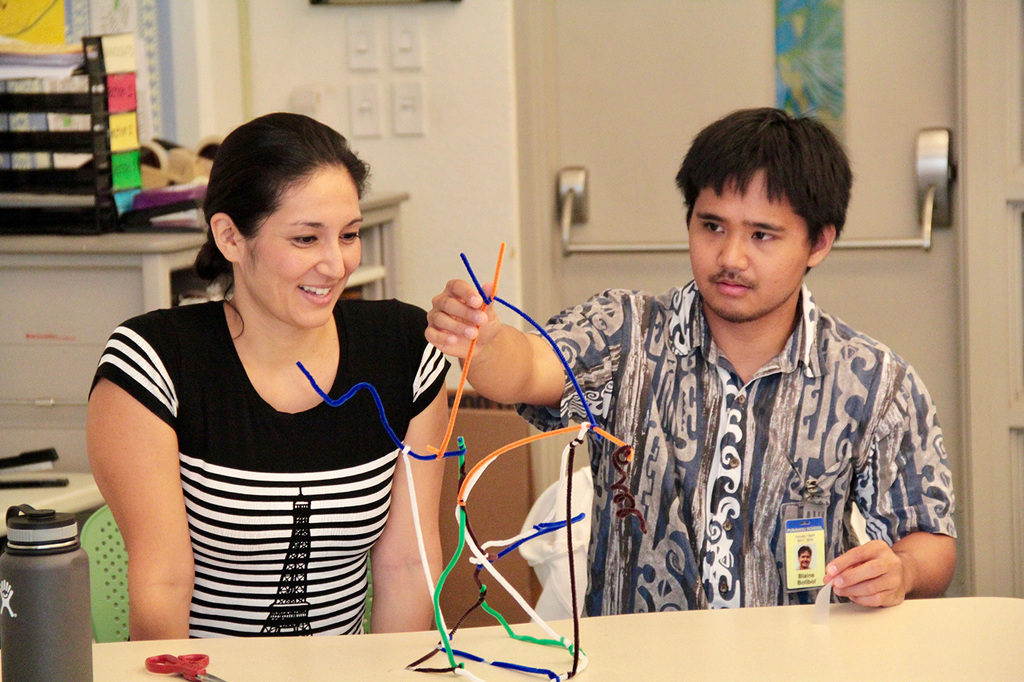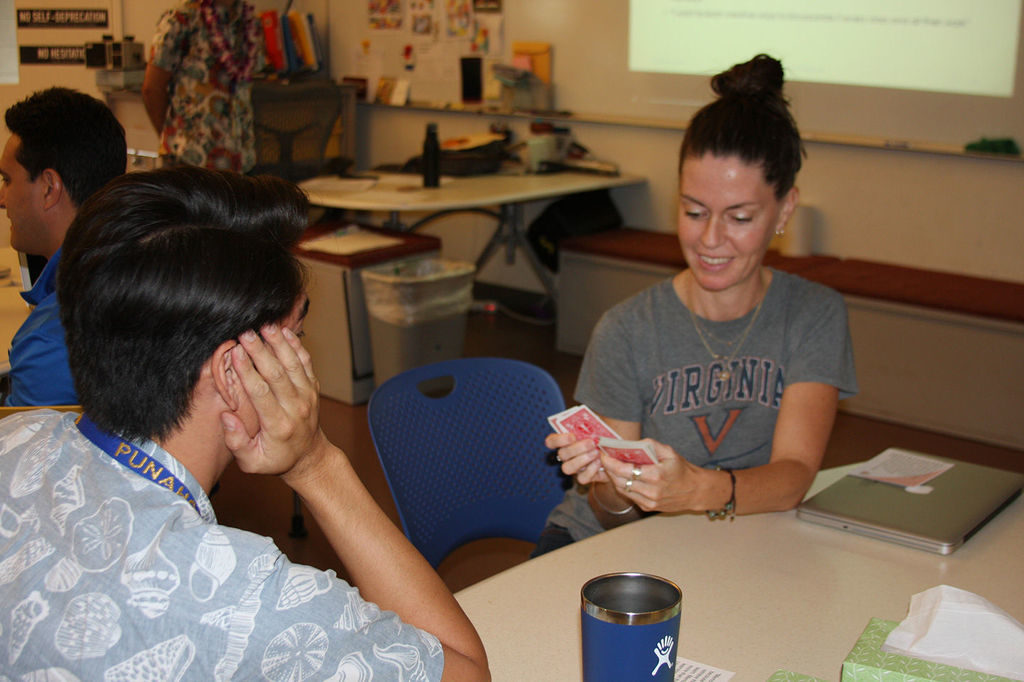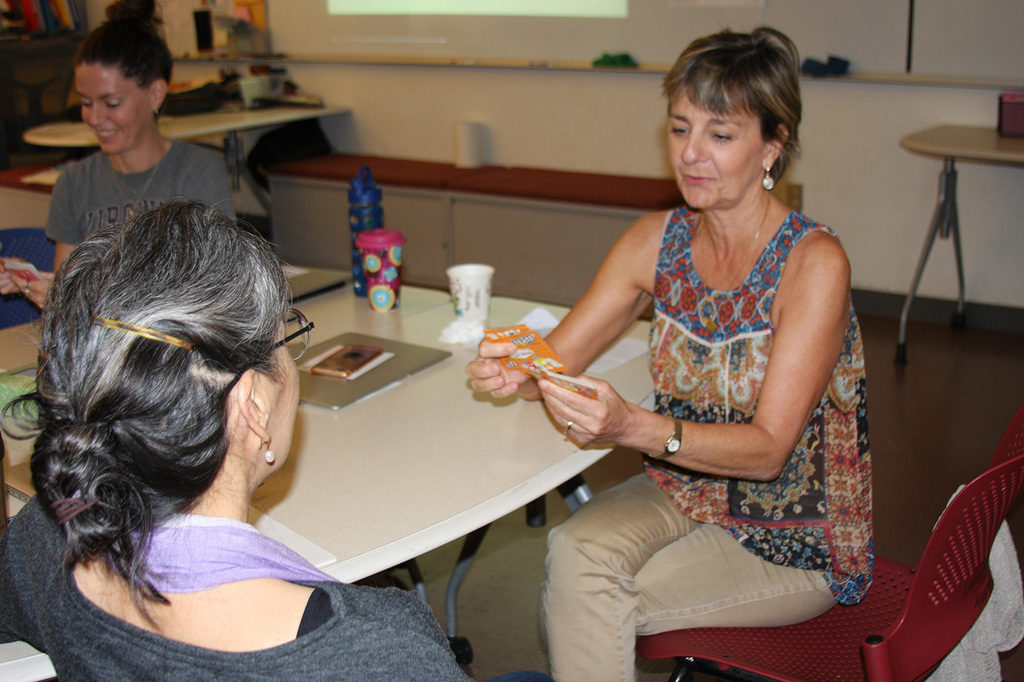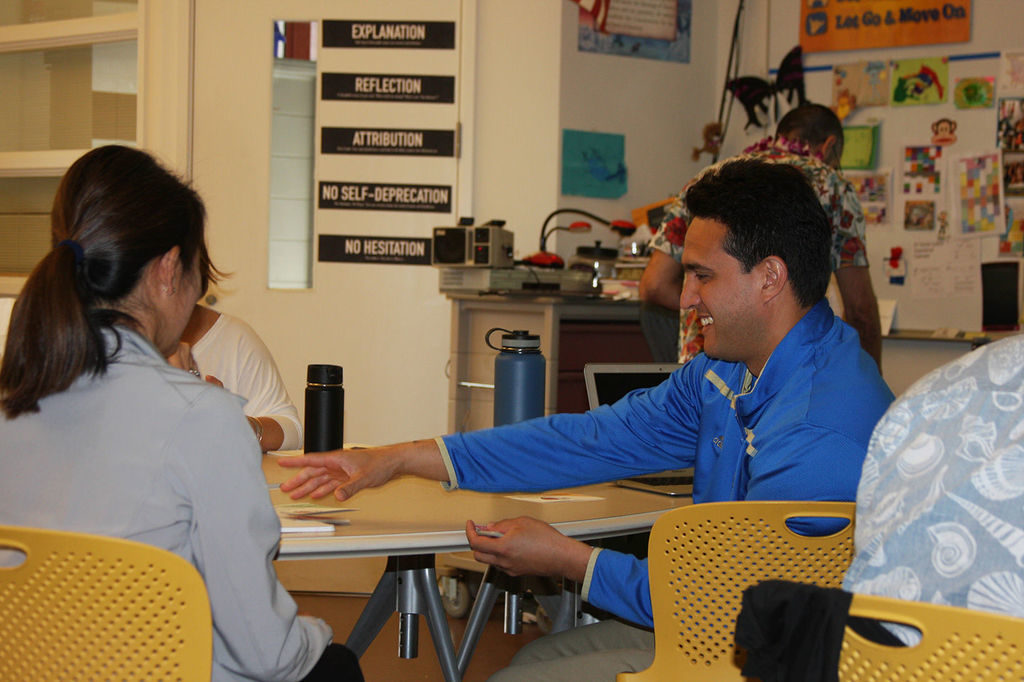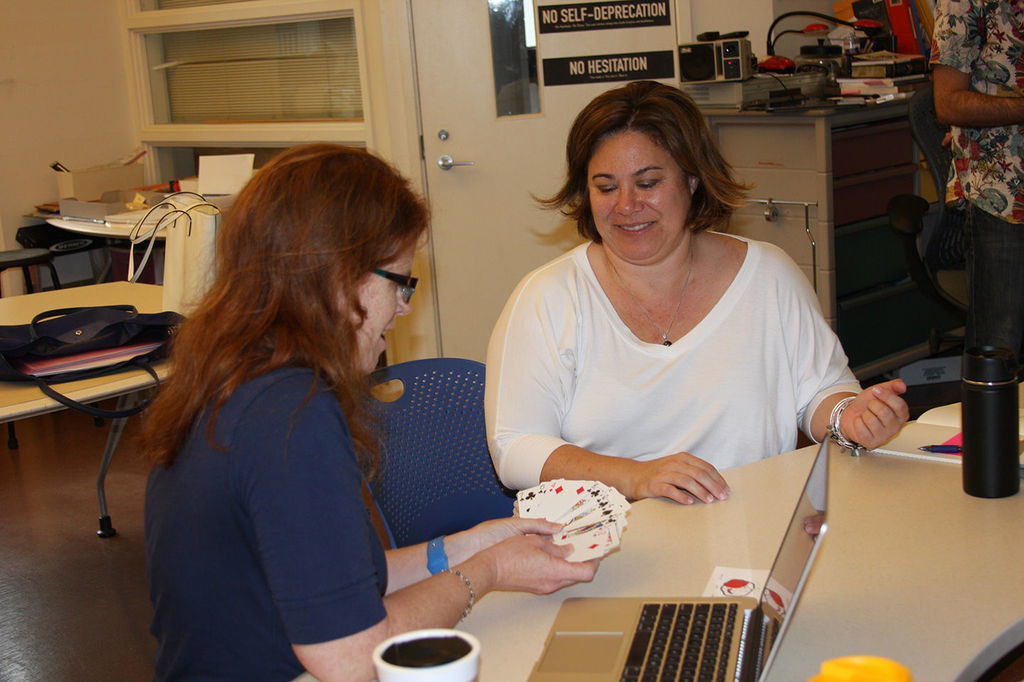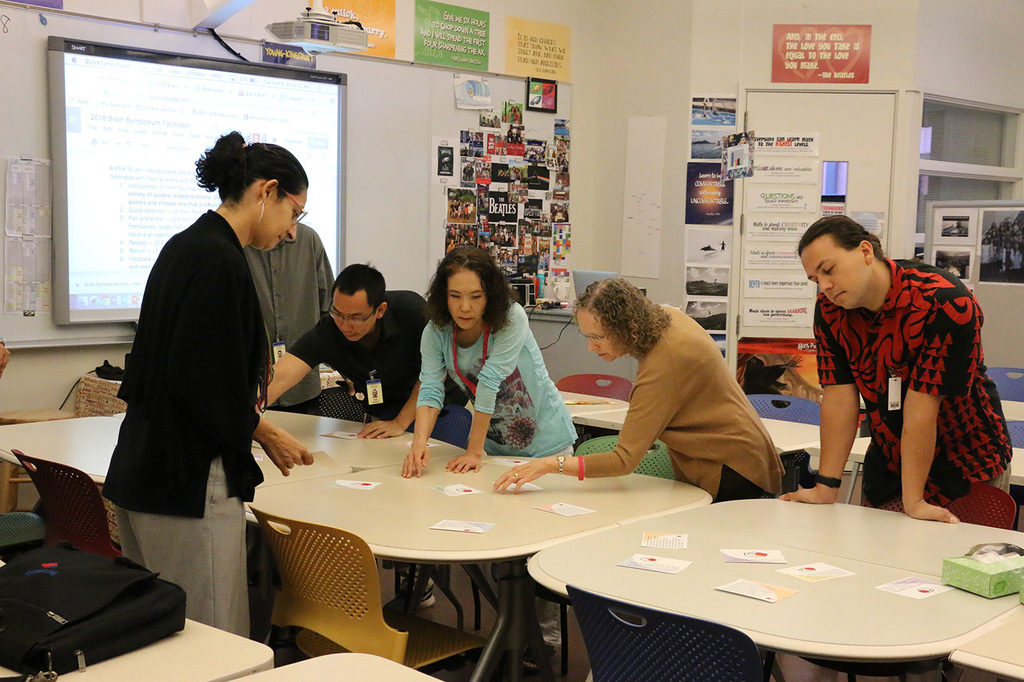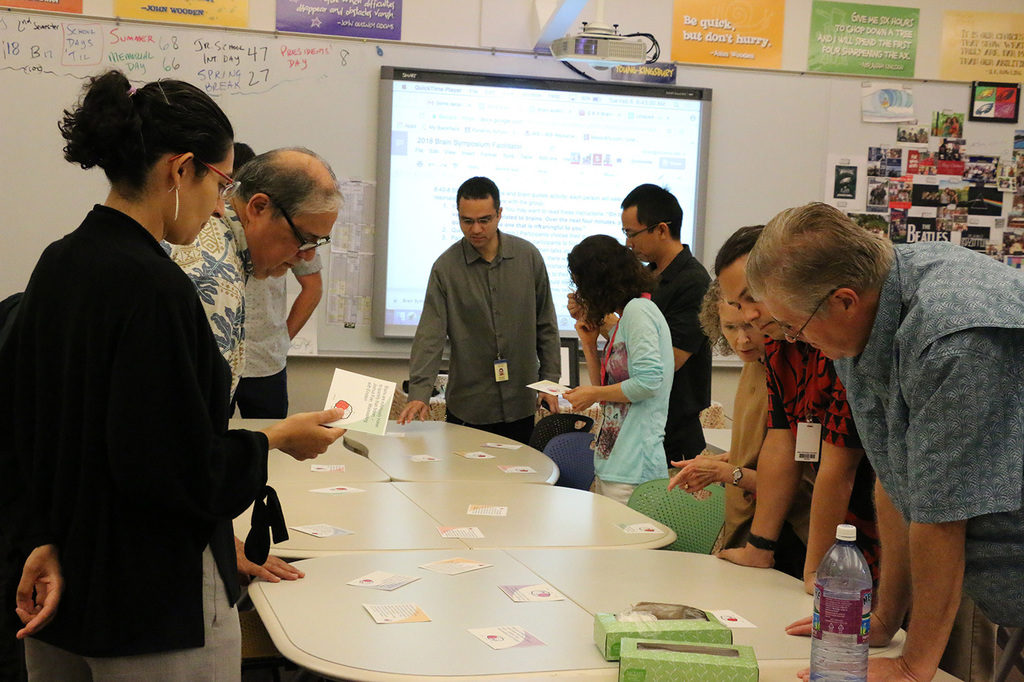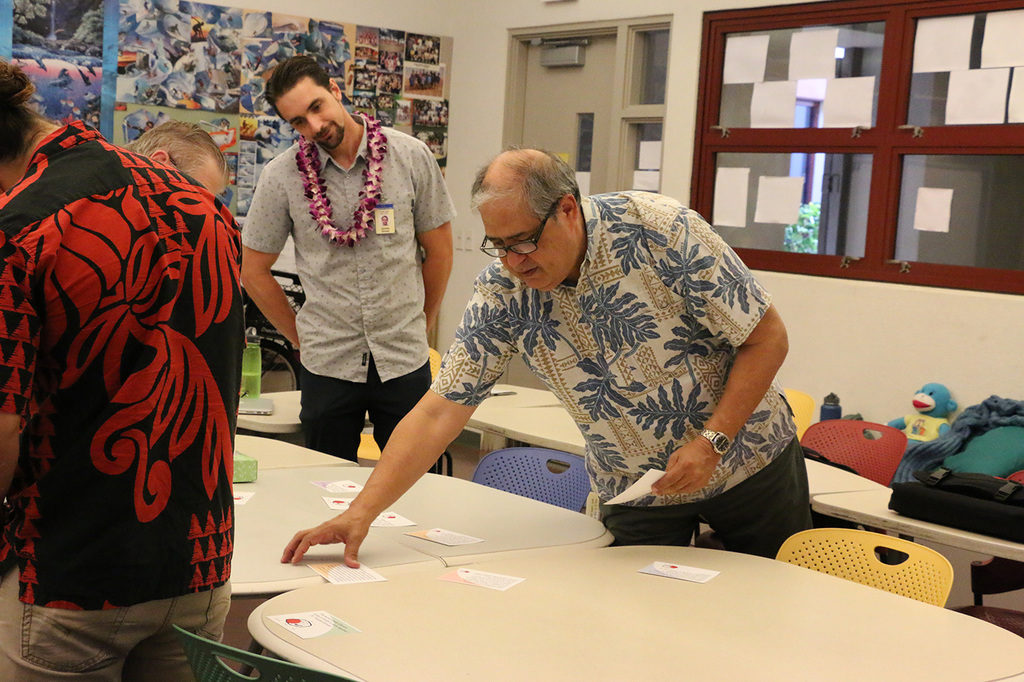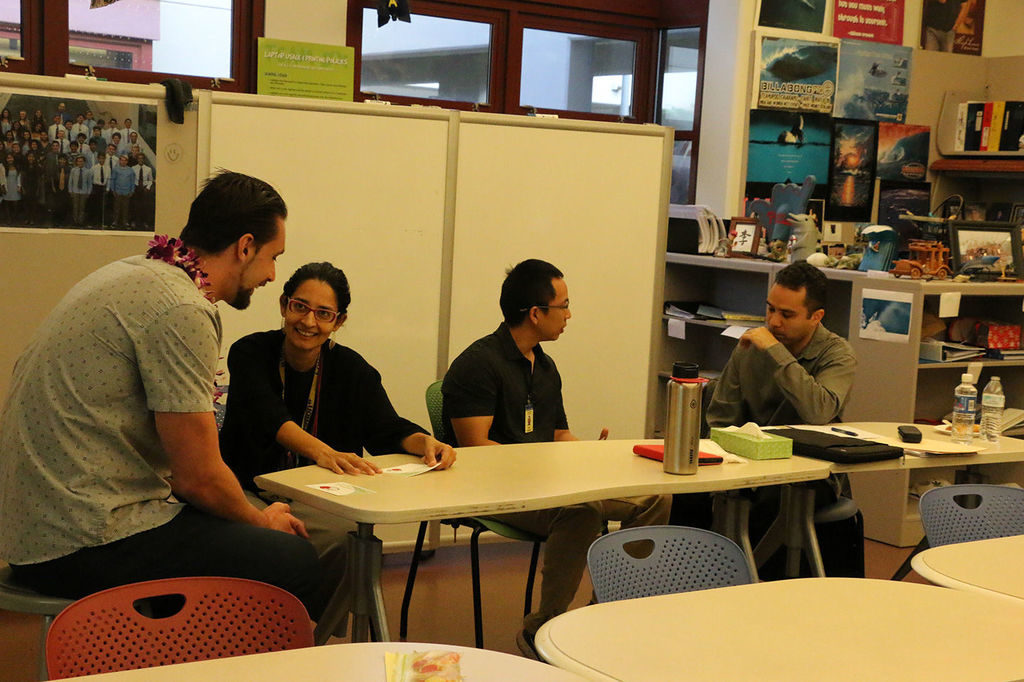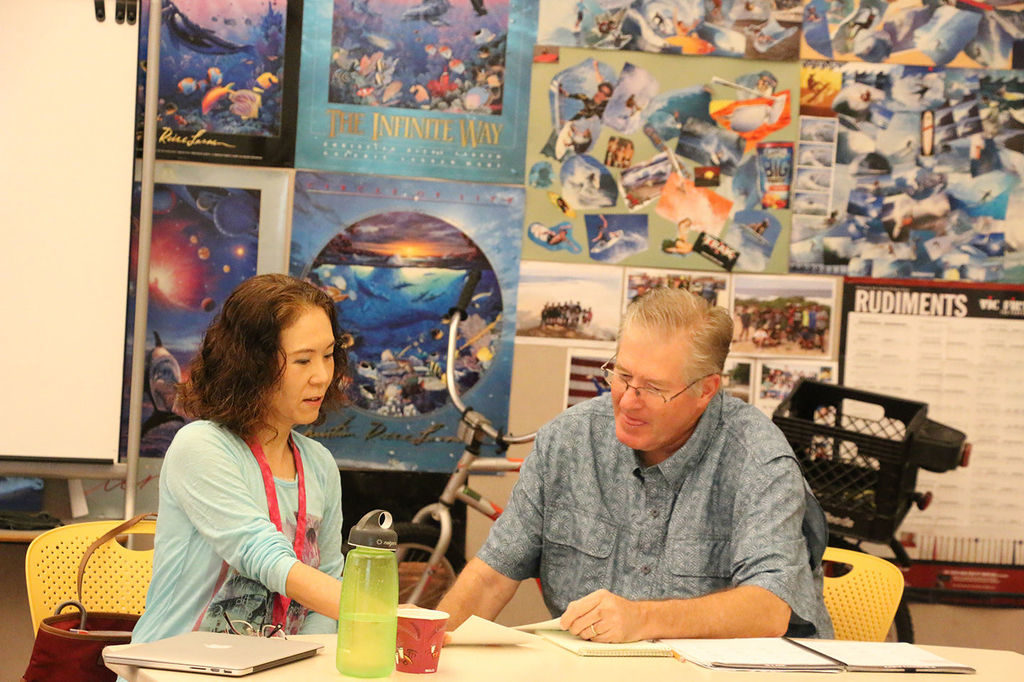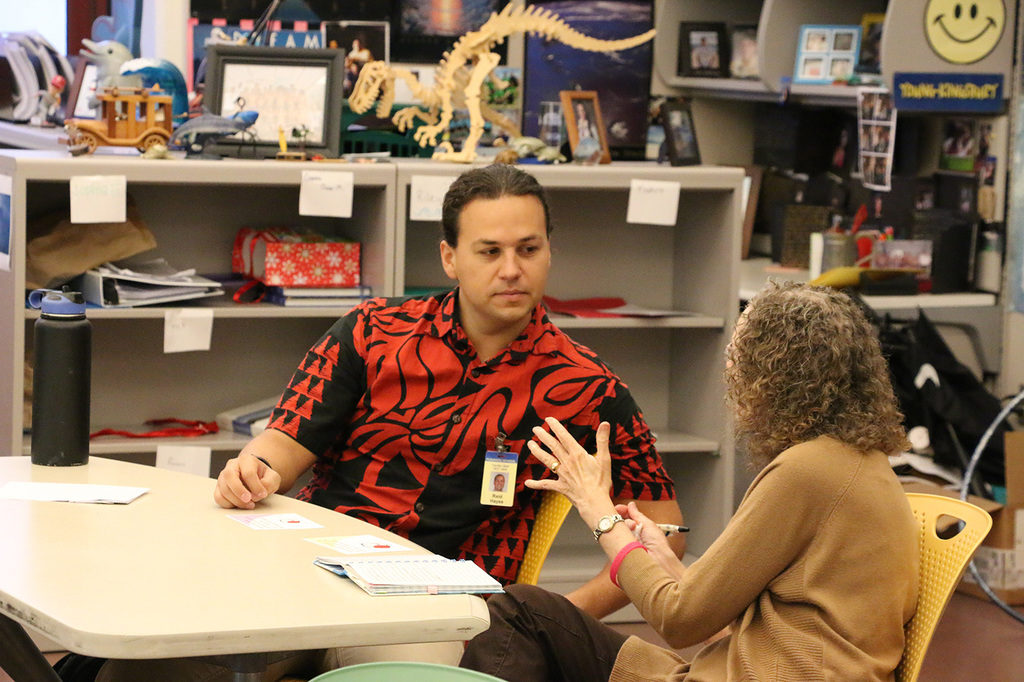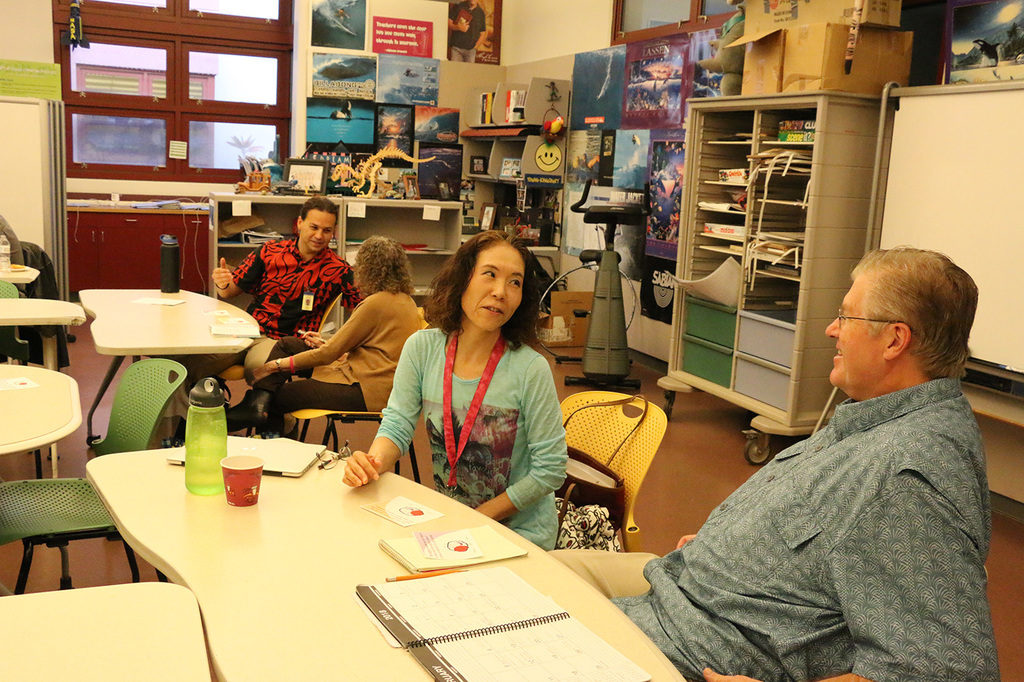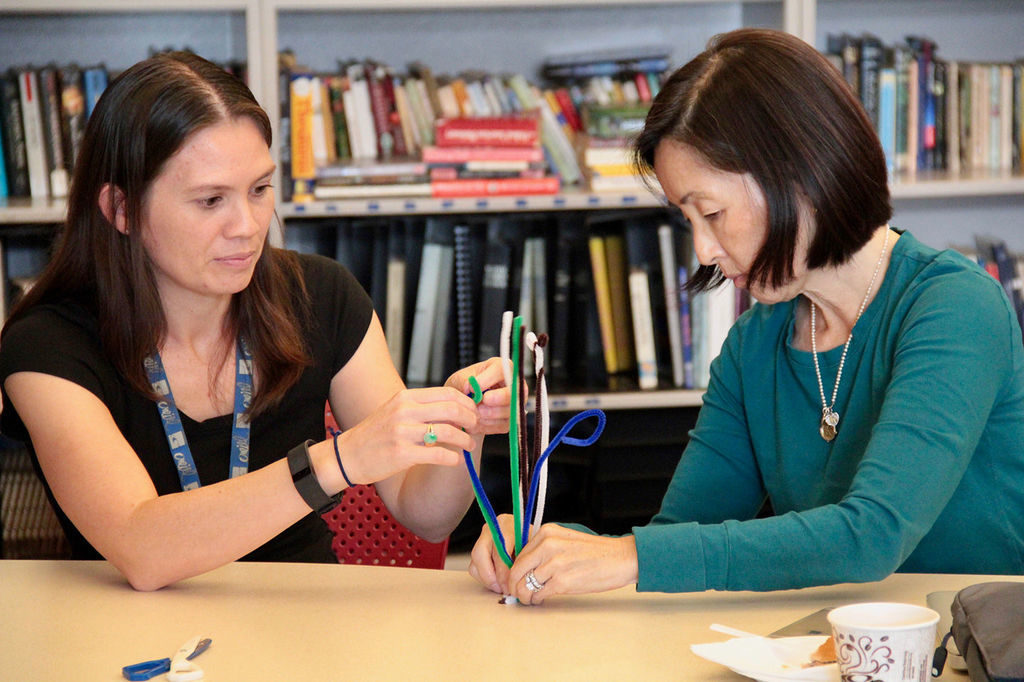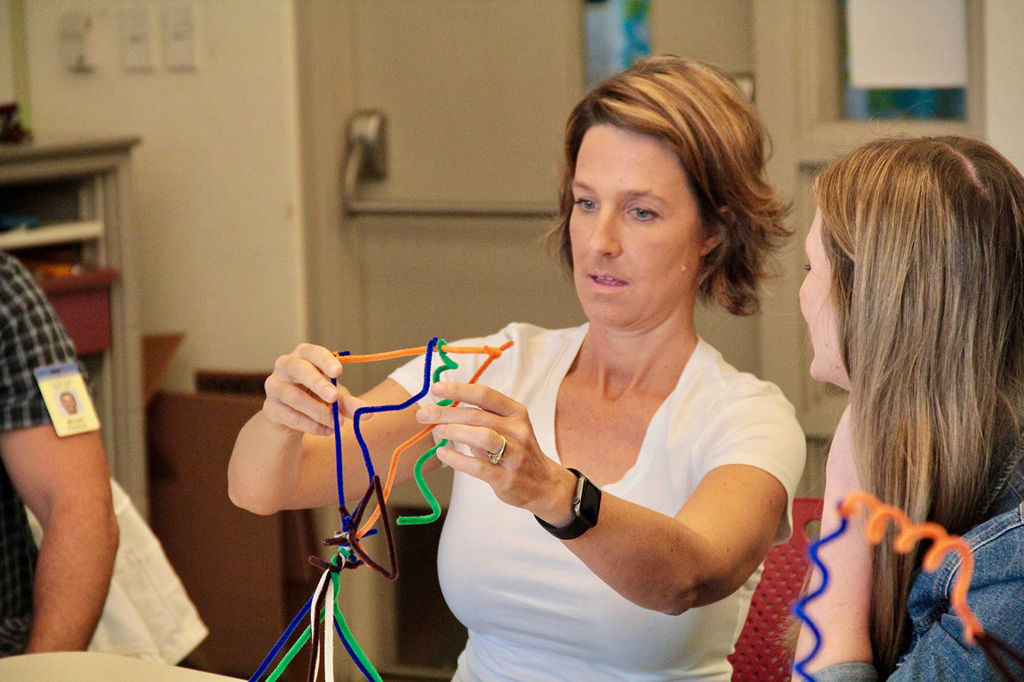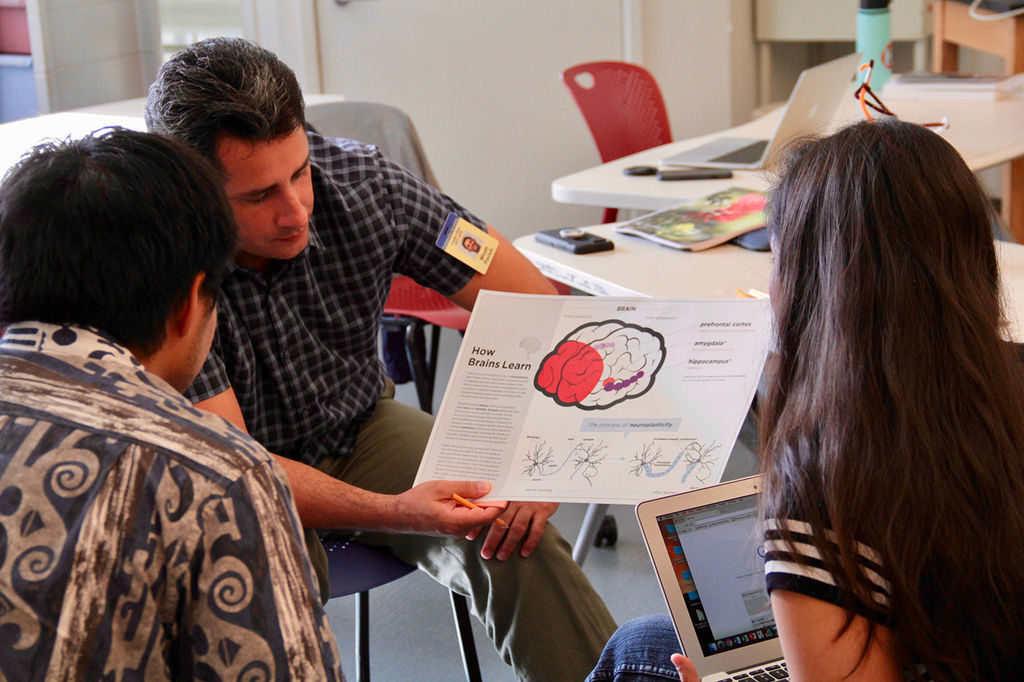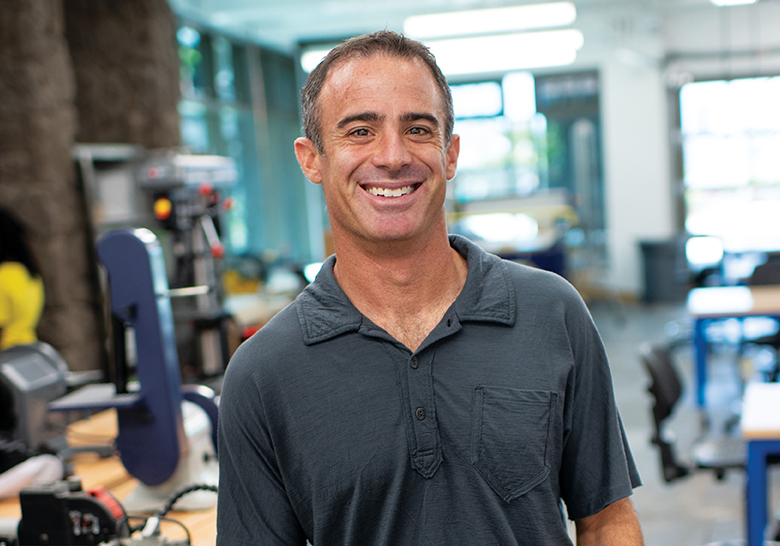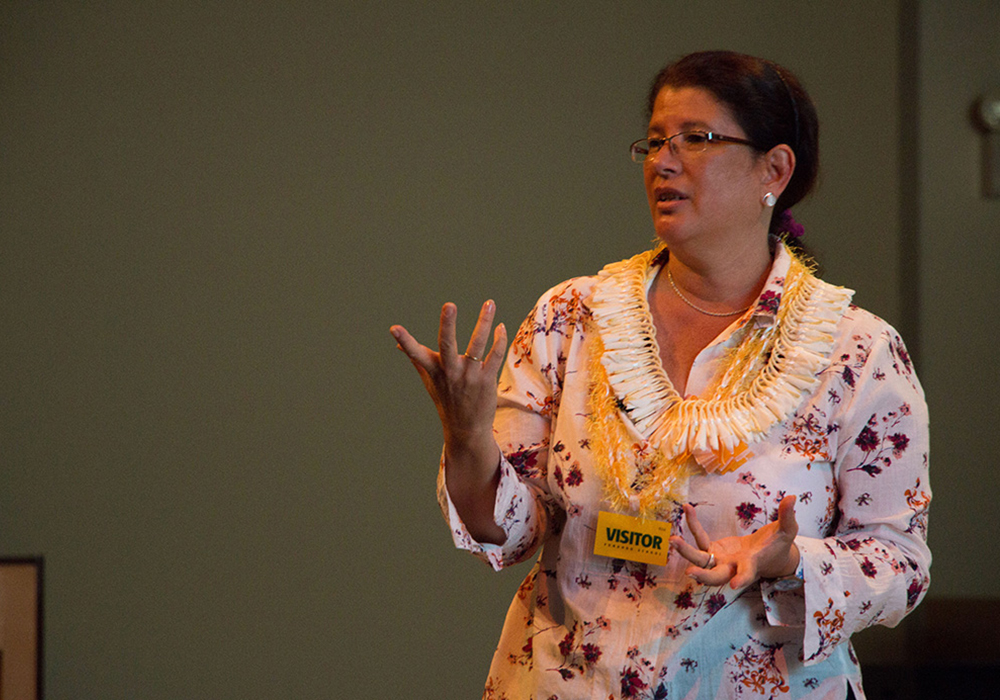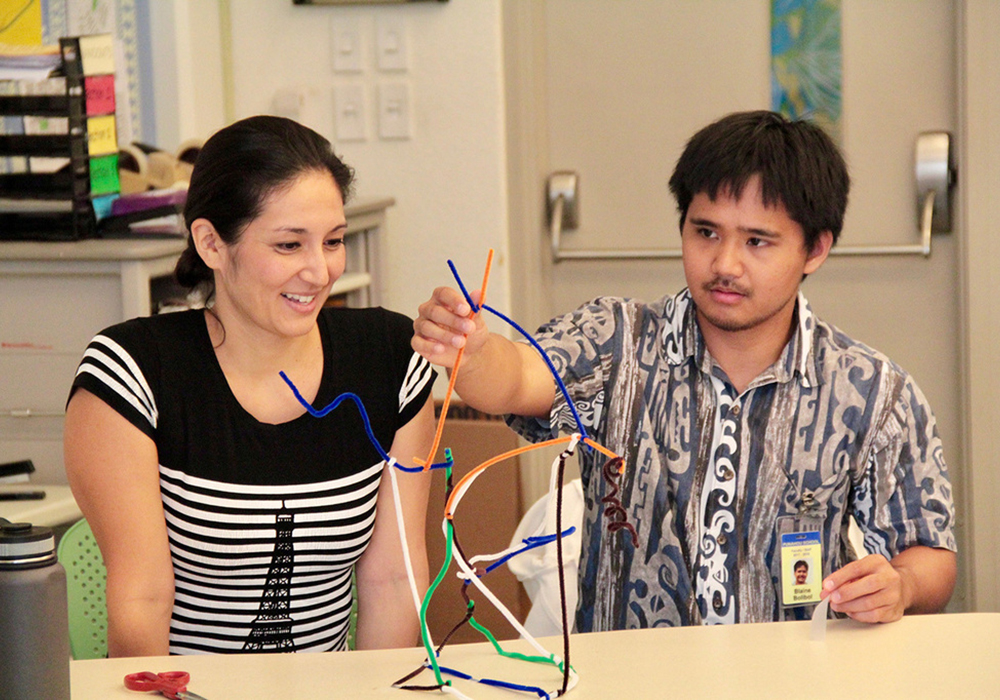
Communications Staff
Each year, Punahou hosts a Brain Symposium with a focus on learning and the brain. This winter, Punahou welcomed back Dr. Tracey Tokuhama-Espinosa, a leader in the field of the teaching philosophy that incorporates research from neuroscience and psychology, to lead the conversation among attendees.
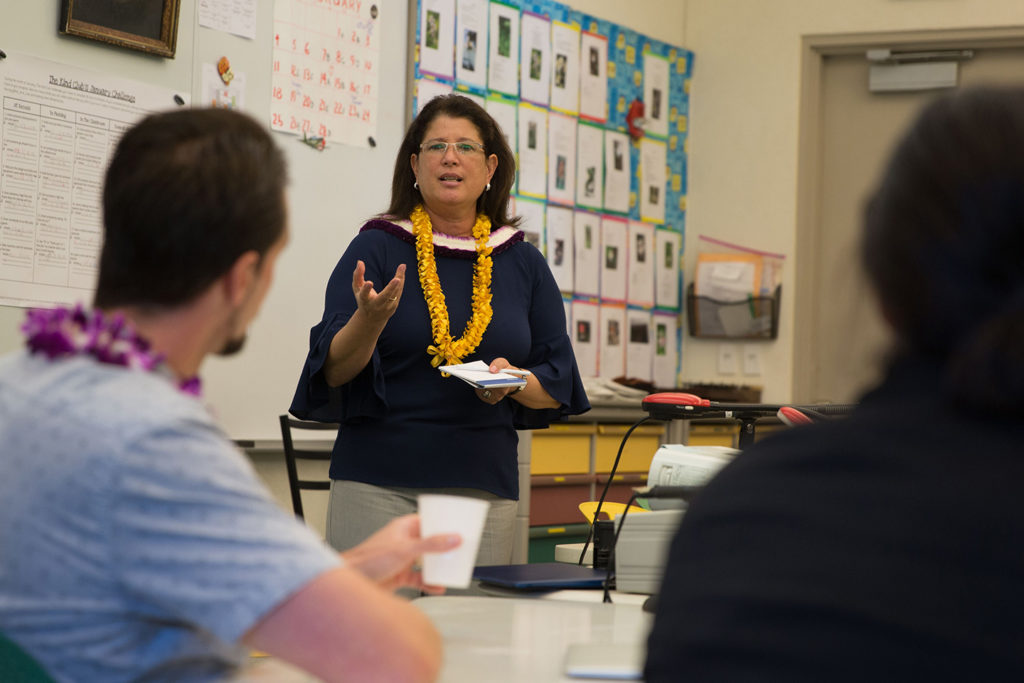
Tokuhama-Espinosa teaches the tenets of Mind, Brain and Education science, which include “that all brains are not equally good at everything,” “that the search for meaning is innate in human nature” and “that each brain is unique.” Great teachers use this information to their advantage when it comes to creating curriculum. “Designing a lesson without an understanding of the brain is like designing a glove without knowledge of a hand,” Tokuhama-Espinosa explained.
During the symposium, Punahou educators gathered in diverse K – 12 groups to cultivate a common understanding of how brains work and to share professional practices with each other. Teachers collaborated on various activities that centered around different lessons about the brain. A group focusing on how prior experience shapes how brains learn created structures out of pipe cleaners, which they passed around the room for others to add to. By the end of the exercise, each structure had been worked on by everyone. The structures modeled neural networks. “It mirrors our work with students – adding to their neural networks as they move through school,” commented Micah Pavich ’95, an Academy mathematics faculty member.
Another group studied how learning requires attention and memory, which involves connecting new learning to previous knowledge and linking memory formation to emotional connection. “Reject general rote memorization as an end in itself, but do appreciate it as a means to get to deeper learning,” said Tokuhama-Espinosa. The group did an activity to observe how distraction affects memorization. They tried to memorize a sequence of playing cards while also answering math problems. Faculty then discussed how the added distraction made the task more difficult.
They also addressed ways to mitigate distractions in the classroom, for example, changing seating arrangements if certain students are creating distractions, requesting that students close laptops and put iPads away, asking that students drop off cell phones as they walk into class, and, finally, giving younger students “Brain Breaks,” such as breathing exercises, when they need to refocus. When talking generally about Mind, Brain and Education science, one teacher drew the conclusion that memory plus attention plus authentic experiences equals long-term learning.
Faculty also demonstrated how they employ their knowledge of the brain in designing lessons. Academy psychosocial faculty member Sarah Slater asked teachers in her group to create a rap song that included three neuroscience terms. She uses this lesson in her class. “It is really helpful for our students to learn about brain science first,” she explained. “Even though the chapter on memory comes later in the text book, it is the first chapter we teach.”
Rather than a keynote address, Tokuhama-Espinosa made herself available to give feedback to small groups of teachers. She also created informational videos for teachers to access. The new approach is consistent with research on professional development and Tokuhama-Espinosa’s experience that small group meetings that address specific questions are more beneficial to learning. Teachers continued their learning through an online course, another example of an effective strategy that helps people retain what they’ve learned.
During her visit, Tokuhama-Espinosa also spoke with parents during an evening lecture entitled “How the Brain Learns Best.” She went over variables that affect learning and how parents can help their children before they start the school day, including making sure children get enough sleep. “Help regulate sleep because that is one of the biggest and most controllable factors that is in your power to help your kids do well in school,” she said.
Punahou faculty look forward to sustaining their learning through a continued partnership with Tokuhama-Espinosa.

